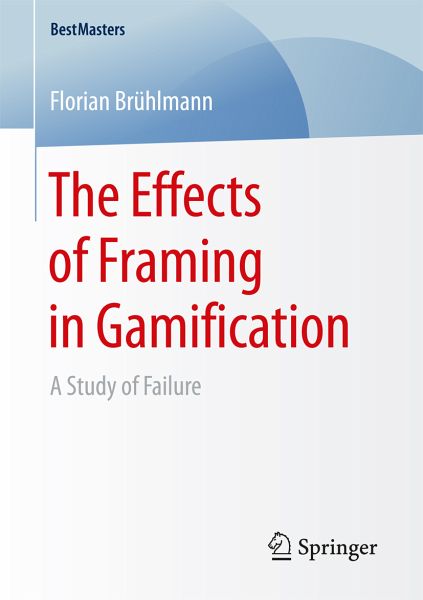
The Effects of Framing in Gamification (eBook, PDF)
A Study of Failure
Versandkostenfrei!
Sofort per Download lieferbar
40,95 €
inkl. MwSt.
Weitere Ausgaben:

PAYBACK Punkte
20 °P sammeln!
The author shows that - contradicting the findings of Lieberoth (2015) - simply framing an activity as a game does not increase intrinsic motivation of the participants in a difficult puzzle task. Moreover, for participants who failed at the puzzle, it does not make any difference in terms of intrinsic motivation whether it was framed as a task, a meaningful task, a game or a test of cognitive abilities. However, perceived value of the activity and satisfaction of the need for autonomy were identified as significant predictors for completing additional rounds of the task. This lends support fo...
The author shows that - contradicting the findings of Lieberoth (2015) - simply framing an activity as a game does not increase intrinsic motivation of the participants in a difficult puzzle task. Moreover, for participants who failed at the puzzle, it does not make any difference in terms of intrinsic motivation whether it was framed as a task, a meaningful task, a game or a test of cognitive abilities. However, perceived value of the activity and satisfaction of the need for autonomy were identified as significant predictors for completing additional rounds of the task. This lends support for the importance of the voluntariness and meaningfulness of the task to keep people engaged in gamification.
Dieser Download kann aus rechtlichen Gründen nur mit Rechnungsadresse in A, B, BG, CY, CZ, D, DK, EW, E, FIN, F, GR, HR, H, IRL, I, LT, L, LR, M, NL, PL, P, R, S, SLO, SK ausgeliefert werden.












